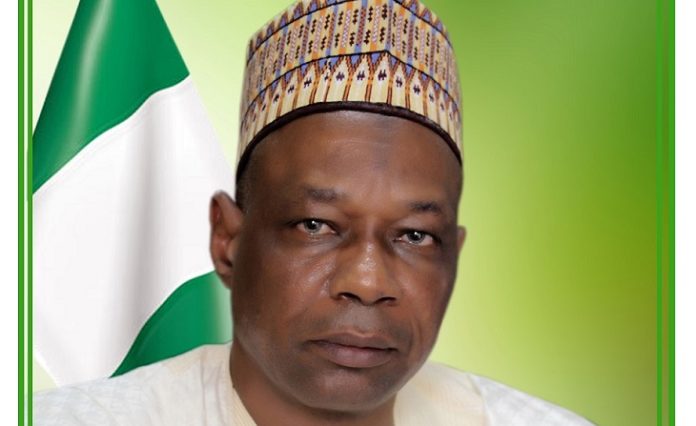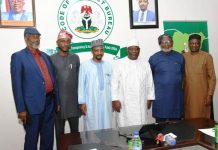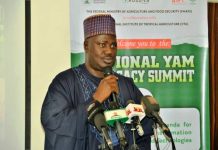ABUJA (Environment Ministry’ Report) Experts in Environmental Impact Assessments (EIA) are gathered in Abuja, the nation’s capital for a 2-day National Stakeholders’ validation workshop to brainstorm on the production of new guidelines and the revision of the existing regulations governing Environmental Impact Assessments.
The organizers of the workshop, the Department of Environmental Assessment under the Federal Ministry of Environment is hosting the stakeholders’ workshop to enable it hold wide consultation with critical stakeholders and harmonize all comments and inputs that will provide advice and expertise to the Ministry and its’ departments in relation to the development of a new robust guidelines on EIA issues in line with global best practices.
Delivering the Minister’s address at the occasion, the Permanent Secretary of the Ministry, Dr. Shehu Mahmud Usman noted that the review exercise underscores the Federal Government’s commitment to the Principles of Sustainable Development and good governance as well as the creation of an enabling environment that will ensure that her citizens live within environmental limits and standard that will promote healthy living.
25 years ago, Decree No. 86 (now known as EIA Act CAP E 12 LFN) was promulgated by the Federal Government in order to achieve sustainable development in Environmental Impact Assessment. This law makes it mandatory that EIA study be carried out for all new major development projects in the country with the Federal Ministry of Environment as the apex body regulating, implementing, coordinating, monitoring and certifying environmental permits in the country.
Dr. Shehu Mahmud stated that global environmental issues such as Strategic Environmental Assessment (SEA) keeps evolving and unfortunately our existing guidelines do not have the capacity to incorporate climate smart decisions that will adequately address this phenomenon.
He therefore maintained that with these new trends and emerging global environmental issues, it has become imperative for Nigeria to review the existing EIA Act which has been in operation for the past two decades and address the shortcomings in order to bridge the gaps and ensure conformity with International Standards especially against the backdrop of the dynamics of Nigeria’s environment.
New elements to be validated during the workshop, include the EIA Procedural Guidelines; Guidelines for Strategic Environmental Assessment; EIA Guidelines and Standards on Social Impact Assessment; EIA Guidelines for Health Impact Assessment; EIA Guidelines for Oil and Gas Upstream (Large volumes, Base Deports, Tank Farms, Terminal and Flow Stations); EIA Guidelines for food and Beverages; EIA Guidelines for Renewable Energy; EIA Guidelines for Fertilizers, Phosphate and Urea Plants; EIA Guidelines for Pesticide; EIA Guidelines for Manufacturing; National Guidelines for Decommissioning of Facilities in Nigeria; Guidelines for Biophysical EIA; Procedural Guidelines for Laboratory Accreditation; EIA Guidelines for Urban Development (Housing, Settlement, Commercial and Business); and Sectorial Guidelines for Waste Management Facility.
Environmental Impact Assessment is procedures that ensure that the environmental implications of decisions are taken into account before the decisions are made. EIA can be undertaken into account for individual projects such as a dam, motorway, airport or factory.
Ovuakporie Efe
For: Director (Press)






